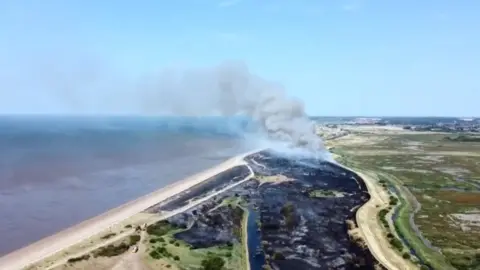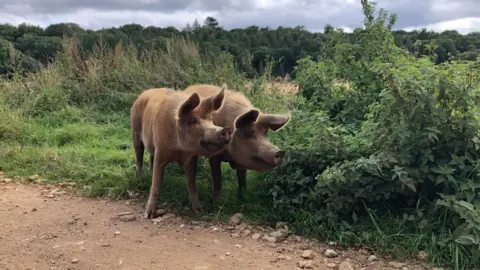BBC Springwatch's Wild Ken Hill 'recovering well' after fire
 Andrew Waddison
Andrew WaddisonThe manager of a nature reserve that caught fire due to extreme heat says "a lot more" must be done to tackle climate change.
During the July heatwave, Wild Ken Hill in Norfolk lost 33 hectares of habitat.
The site, which has been a base for BBC Springwatch, lost a "significant" number of small mammals, reptiles, amphibians and late-nesting birds.
"We watched something that was very shocking and scary," said reserve manager Dominic Buscall.
"That was what was nasty for us - having to watch that as a team because that's obviously what we work so hard to conserve and restore at Wild Ken Hill."
On the same afternoon of the fire at Wild Ken Hill - Tuesday, 19 July - Norfolk Fire and Rescue Service declared a major incident across the county as the UK saw its highest-ever recorded temperature of 40C (104F) in Lincolnshire.
 Jill Bennett/BBC
Jill Bennett/BBCAfter the fire had been extinguished, Mr Buscall shared the extent of the damage in a Twitter thread and the reserve posted video of the fire on Instagram.
Despite the damage he said they were "recovering well" and the habitat was likely to regenerate in the long term.
As the Met Office has announced an amber extreme heat warning for Thursday until Sunday, he said: "We do hope that we'll take the appropriate actions in terms of not littering, being responsible when visiting sensitive areas, particularly no disposable barbecues... that's critical."
"I hope that these fires that we've had this summer show to government, business and society that we've got to do a lot, lot more on climate change because these extreme weather events are only going to become more common."

Find BBC News: East of England on Facebook, Instagram and Twitter. If you have a story suggestion email [email protected]
